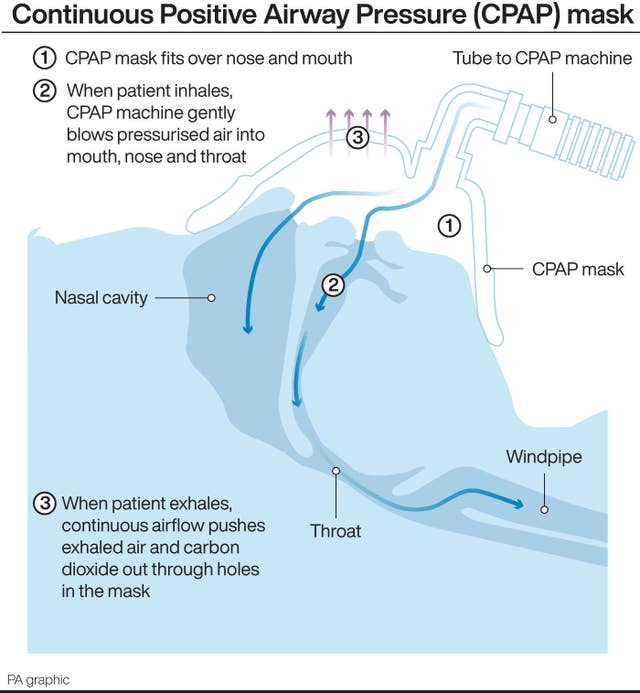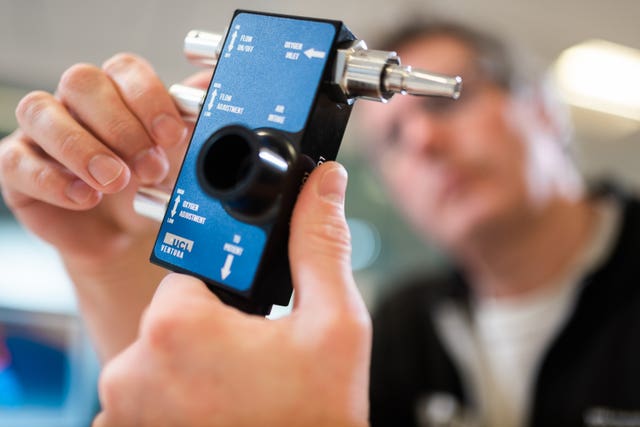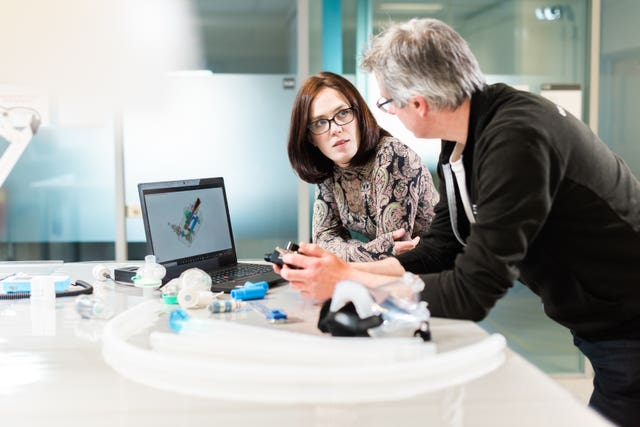Breathing machine developed in under 100 hours to help Covid-19 patients
Reports from Italy suggest around half of patients using such devices have avoided the need for invasive mechanical ventilation.

A breathing aid that can help keep Covid-19 patients out of intensive care has been given the go-ahead for use on the NHS, Downing Street has said.
The device, known as continuous positive airway pressure (CPAP), has been used extensively in hospitals in Italy and China to help coronavirus patients and bridges the gap between an oxygen mask and the need for full ventilation, which requires sedation and an invasive procedure.
A team from University College London (UCL) and University College London Hospital (UCLH) have worked with Mercedes Formula One to adapt and improve existing CPAP in a process known as reverse engineering.
The device has now been recommended for use by the Medicines and Healthcare products Regulatory Agency (MHRA), which approves medical devices in the UK.
Downing Street said the NHS has been given the go-ahead to order enough of the machines to meet “clinical demand” after trial results were positive.
The adapted device was developed in under 100 hours from an initial meeting to production of the first CPAP.

UCLH critical care consultant Professor Mervyn Singer said: “These devices will help to save lives by ensuring that ventilators, a limited resource, are used only for the most severely ill.”

“It is, quite simply, a wonderful achievement to have gone from first meeting to regulator approval in just 10 days. It shows what can be done when universities, industry and hospitals join forces for the national good.”
CPAP machines are routinely used by the NHS to support patients in hospital or at home with breathing difficulties, but are said to be in short supply currently.
They work by pushing a mix of oxygen and air into the mouth and nose at a continuous rate, helping to increase the amount of oxygen entering the lungs.
Professor Rebecca Shipley, director of the UCL Institute of Healthcare Engineering, said: “It’s been a privilege to work closely with our clinical colleagues and with doctors leading the Covid-19 response in China and Italy.
“This close contact has helped us to define the need and respond with technology that we hope will support the NHS in the weeks and months to come.”

“From being given the brief, we worked all hours of the day, disassembling and analysing an off-patent device.
“Using computer simulations, we improved the device further to create a state-of-the-art version suited to mass production.
“We were privileged to be able to call on the capability of Formula One.”
Andy Cowell, managing director of Mercedes-AMG High Performance Powertrains, said: “We have been proud to put our resources at the service of UCL to deliver the CPAP project to the highest standards and in the fastest possible timeframe.”





